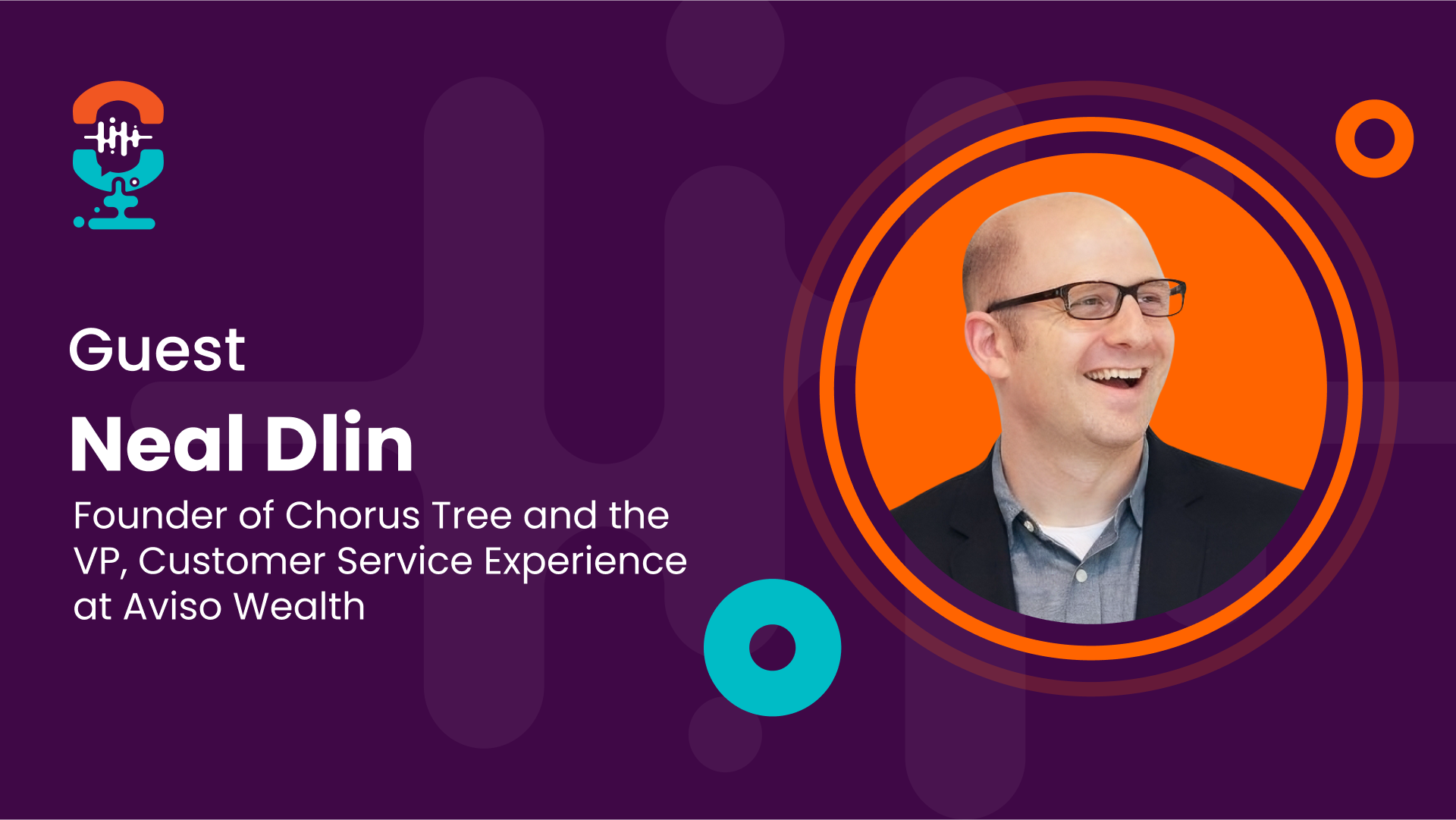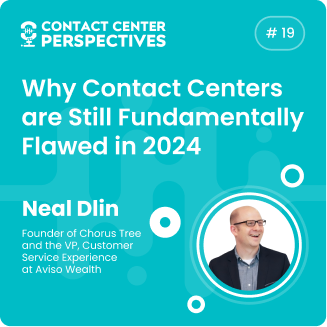Creating Contact Centers That Directly Impact Company Performance

Byline: This article is based on an interview with Lauren Volpe, Chief Customer Experience Officer at Zip Co.
Key Takeaways:
- Shifting the perspective on contact centers from cost centers to value-added assets can impact company performance.
- AI can enhance the agent and customer experience, but it is crucial to communicate clearly with agents about its intentions and benefits.
- Data analysis is critical in identifying trends, improving interactions, and making informed decisions to enhance company performance.
- Trust and empowerment are critical factors in reducing agent turnover and creating a positive work environment.
- Focusing on the middle customer segment, those who are neither highly satisfied nor dissatisfied, can lead to significant revenue gains.
Introduction
This podcast focuses on redefining the traditional perception of contact centers as mere cost centers and recognizing their potential to become valuable assets contributing to overall company success. Lauren Volpe, drawing from her role as the Chief Customer Experience Officer at Zip Co., underscores the significance of shifting the narrative surrounding contact centers. She emphasizes that these centers are not just operational expenses but can serve as strategic drivers of business performance and customer satisfaction.
By reframing the perspective, companies can unlock the untapped potential within their contact centers, leveraging them as key components of their customer experience strategy. Lauren’s insights highlight the transformative power of viewing contact centers as value-adding assets rather than cost centers, signaling a paradigm shift in how organizations approach customer service operations.
Transforming Contact Centers: From Cost Centers To Value-Adding Assets
Traditionally, contact centers have often been regarded as cost centers, where the primary objective is to minimize expenses. However, Lauren challenges this conventional perspective by advocating a paradigm shift in how organizations perceive and manage their contact centers. She proposes viewing contact centers not merely as cost centers but as strategic investments that yield returns. This reframing prompts organizations to adopt a more proactive approach, prioritizing investments in customer satisfaction and experience rather than solely focusing on cost reduction.
The approach emphasizes the importance of investing in resources, technologies, and training that empower agents to deliver exceptional service and build strong customer loyalty, ultimately leading to long-term profitability and sustainable growth. Thus, Lauren’s perspective highlights the transformative power of viewing contact centers as strategic assets rather than mere cost centers. It offers a compelling strategy for organizations to differentiate themselves in today’s competitive landscape.
The Role Of AI In Enhancing The Agent And Customer Experience
One of the key topics discussed in the podcast is the role of artificial intelligence (AI) in contact centers. Lauren acknowledges that there is a lot of hype surrounding AI, with many organizations chasing after every potential application without a clear focus. However, she believes that AI can have a significant impact if organizations identify specific problems they want to solve and concentrate their efforts in those areas.
One challenge with implementing AI in contact centers is agents’ fear that their jobs will be replaced. She emphasizes the importance of communicating the intentions behind using AI and how it can benefit both agents and customers. For example, using AI for automated quality assurance (QA) can free up agents’ time and provide valuable feedback to improve performance. Additionally, AI can generate interaction summaries, reducing after-call work and providing agents with insights to enhance their training.
Leveraging Data For Informed Decision-Making
Lauren also highlights the importance of data in contact centers. She emphasizes that while organizations may only use some pieces of data they collect, having access to rich information allows them to analyze trends, identify areas for improvement, and make informed decisions. For example, analyzing customer interactions can reveal patterns and issues that may have gone unnoticed, enabling organizations to address them proactively.
By leveraging AI to analyze data from customer interactions, organizations can identify trends and patterns that may indicate areas for improvement. For instance, if a new product launch receives negative customer feedback, AI can quickly identify the issue and allow organizations to take corrective action. This data-driven approach improves customer satisfaction and saves time and resources by addressing issues before they escalate.
The Middle Customer: A Revenue Opportunity
One of the most intriguing concepts discussed in the podcast is focusing on the middle customer segment. These customers are neither promoters nor detractors, typically rating their experience yet constitute the bulk of customers. They may be less vocal or enthusiastic customers but represent a mostly overlooked and significant revenue opportunity.
Lauren suggests that organizations should invest in understanding and improving the experience of these middle customers. By identifying the factors that prevent them from becoming promoters, organizations can make targeted improvements to enhance their experience. This could involve streamlining processes, improving self-help options, or addressing pain points causing dissatisfaction.
Trusting And Empowering Agents To Drive Performance
The podcast also delves into the importance of agents in contact centers and their impact on company performance. Lauren highlights the issue of high agent turnover and the acceptance of underperformance as a common practice. She argues that organizations should prioritize agent retention and performance by building trust and empowering them.
Organizations can create a sense of ownership and engagement by listening to agents’ feedback and involving them in decision-making. She shares a personal experience where empowering agents to go off-script and make decisions based on their expertise improved agent satisfaction, reduced turnover, and created higher-quality customer interactions.
Conclusion
Lauren Volpe provides valuable insights into transforming contact centers into value-adding assets. Organizations can unlock untapped revenue opportunities and improve overall performance by shifting the perspective from cost centers to investments. Leveraging AI, analyzing data, focusing on the middle customer segment, and empowering agents are key strategies to drive success in contact centers. By embracing these approaches, organizations can enhance the agent and customer experience, reduce costs, and achieve better business outcomes.
Looking for specific information?
Our specialist will help you find what you need in customer service outsourcing
Book a callDiscover Contact Center Perspectives Podcast
Discover the themes that resonate most with your challenges
 English
English






